
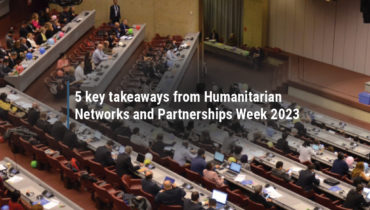
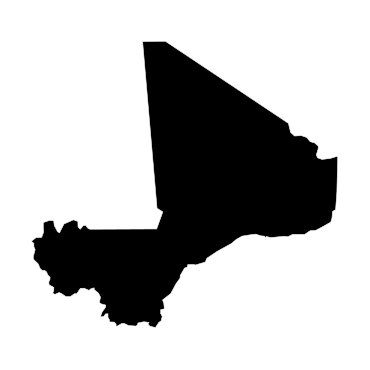
Since March 2012, political instability and internal armed conflict have aggravated Mali’s precarious humanitarian situation, characterised by mass displacement, latent food insecurity and malnutrition, coupled with unpredictable weather conditions and economic instability.
Within the framework of its partnership with the Global Shelter Cluster, IMPACT deployed a REACH team to Mali in November 2012 to provide shelter assessments and information management support to the active Clusters in the country. The objectives of the deployment were to understand and map displacement trends and assess the needs of internally displaced people.
Furthermore, REACH participated in the mapping of basic services in north Mali designed to facilitate decision-making by inter-sectorial and sectorial coordination bodies. Later in 2013, REACH was deployed on behalf of the Shelter Cluster to launch a rapid needs assessment in Timbuktu and Gao regions. The same year, REACH also conducted a floods analysis assessment using data from 2006 to 2013. The analysis succeeded in producing maps showing the frequency and impact of floods in different regions of Mali and providing valuable data for prevention and risk mitigation activities. The maps were used by the humanitarian community and the Government of Mali as a baseline to inform the flood contingency plan for 2014. One of the last information products produced by REACH was a WASH baseline report focusing on access to water for affected communities in Kidal, Timbuktu and Gao.
In 2019 REACH started working again in Mali providing information for humanitarian and aid actors on the situation in the central and northern parts of the country.



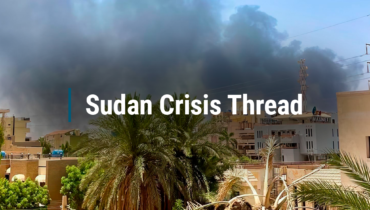
Clashes between the Sudanese Armed Forces (SAF) and the Rapid Support Forces (RSF) broke out on 15 April 2023. Fighting has been concentrated in densely populated urban centres, starting in Khartoum but quickly spreading across the country. These clashes have triggered waves of forced displacement, both internally as well as to neighbouring countries, including Central […]

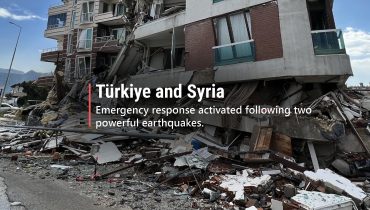
As of the 14 of March 2023, this thread has been archived. To see future updates on Syria, see our latest news section and for more information products, check out our REACH Syria page Two powerful earthquakes struck south-eastern Türkiye within a span of 12 hours on the 6th of February. The first, with a […]

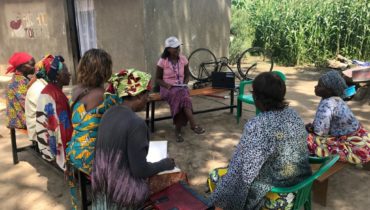
Today marks International Women’s Day, an annual global event intended to celebrate women’s achievements while also calling for greater gender equality and equity. To commemorate the milestone this year, we explored the application of gender-inclusive approaches in humanitarian research, specifically needs assessments that are conducted with representatives from crisis-affected communities in the world’s largest humanitarian […]

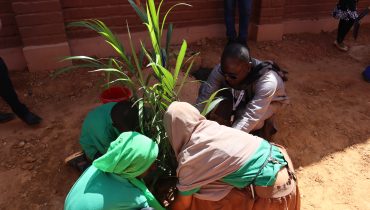
As an homage to the victims of the Kouré attack of August 2020, a shared project to build a school has been set up with families of the victims. It is implemented by ACTED, IMPACT and Léo Pour Le Monde. Since October 3rd, the school welcomes 180 pupils in middle school, and from Year 2 […]

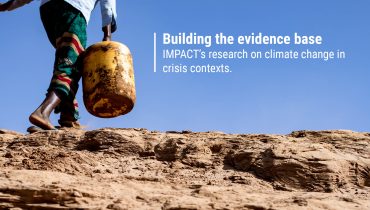
The COP27 climate summit kicked off this week in Sharm El-Sheikh, Egypt. As parties to the climate change treaty gather to review annual progress on reducing carbon emissions, one key issue at the forefront for many activists is the impact the climate crisis is having on poorer countries. These nations bear the brunt of erratic […]

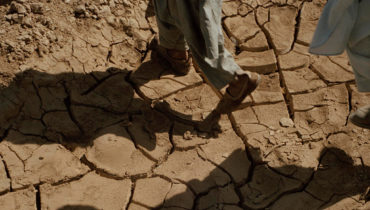
IMPACT Initiatives, notably via its REACH, AGORA, and PANDA initiatives, is increasingly committing research efforts to inform the aid community on how to tackle climate risk. The objective? To identify evidence-based solutions that can be applied in fragile contexts to strengthen the resilience of communities. How? By conducting scientifically robust risk assessments, working with local actors to develop a better understanding of risk, and building local analytical and communication capacities.

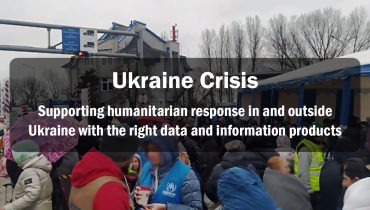
As of the 6 of October 2022, this thread has been archived. To see future updates on Ukraine, see our latest news section and for more information products, check out our REACH Ukraine page FIRST 100 DAYS OF THE UKRAINE WAR As conflict in Ukraine continues, the gravity of the humanitarian situation is clear. People […]


REACH Mali Evaluation Multisectorielle des besoins (MSNA) 2022, Présentation des résultats clés (5 septembre 2022 - 16 octobre 2022)
PDF2.3M

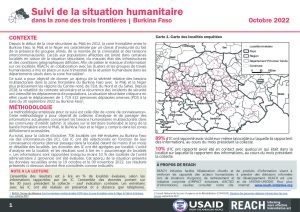
HSM 3F - Fiche pays Burkina Faso- Octobre 2022
PDF46.1M


REACH_BFA - ToR Evaluation accès au foncier et cohesion sociale, avril 2023_External
PDF444.8K


Evaluation des besoins en termes d’Eau, Hygiène et Assainissement (EHA) au moyen de la télédétection au Mali: Dynamique des eaux de surface
PDF2.3M


REACH Mali Suivi de la situation humanitaire dans la zone frontalière, Mali, Fiche d’information (26 janvier-19 février 2023)
PDF6.6M


HSM 3F - Fiche pays Burkina Faso- Février 2023
PDF36.3M

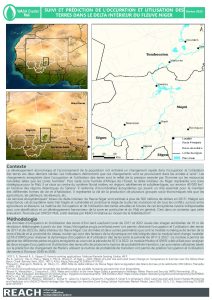
Evaluation des besoins en termes d’Eau, Hygiène et Assainissement (EHA) au moyen de la télédétection au Mali : Suivi et prédiction de l’occupation et utilisation des terres dans le delta Intérieur du fleuve Niger
PDF29.4M


REACH Mali Evaluation Multisectorielle des besoins (MSNA), Bulletin 2022 (5 septembre 2022 – 16 octobre 2022)
PDF1.8M

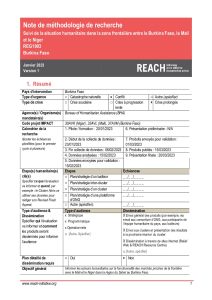
REACH_BFA_HSM_Note méthodologique_Etude thématique marchés du Sahel_Janvier 2023
PDF466.9K


Evaluation des besoins en termes d’Eau, Hygiène et Assainissement (EHA) au moyen de la télédétection au Mali : Evaluation du stockage des eaux souterraines
PDF4.6M


Evaluation des besoins en termes d’Eau, Hygiène et Assainissement (EHA) au moyen de la télédétection au Mali : Susceptibilité d'inondation
PDF2.7M

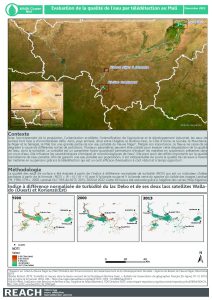
Evaluation des besoins en termes d’Eau, Hygiène et Assainissement (EHA) au moyen de la télédétection au Mali: qualité de l'eau
PDF3.3M

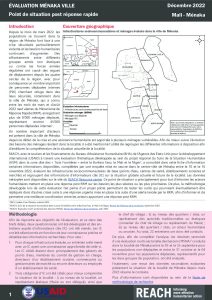
REACH MALI HSM 3F Evaluation Ad-hoc Ménaka - Fiche d'Information - Décembre 2022
PDF1.7M


REACH Mali Evaluation Multisectorielle des besoins (MSNA) 2022, Note méthodologique (5 septembre 2022 - 16 octobre 2022)
PDF842.2K

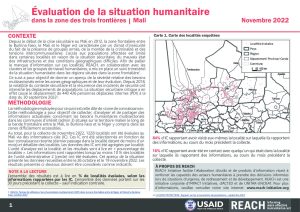
REACH Mali Suivi de la situation humanitaire dans la zone frontalière, Mali, Fiche d’information (26 octobre-19 novembre 2022)
PDF11.4M

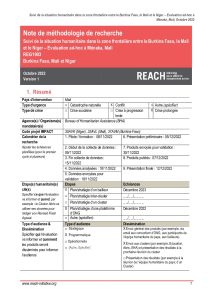
REACH MALI HSM 3F Eval. Adhoc Ménaka - Note Méthodologique - Novembre2022
PDF1.1M